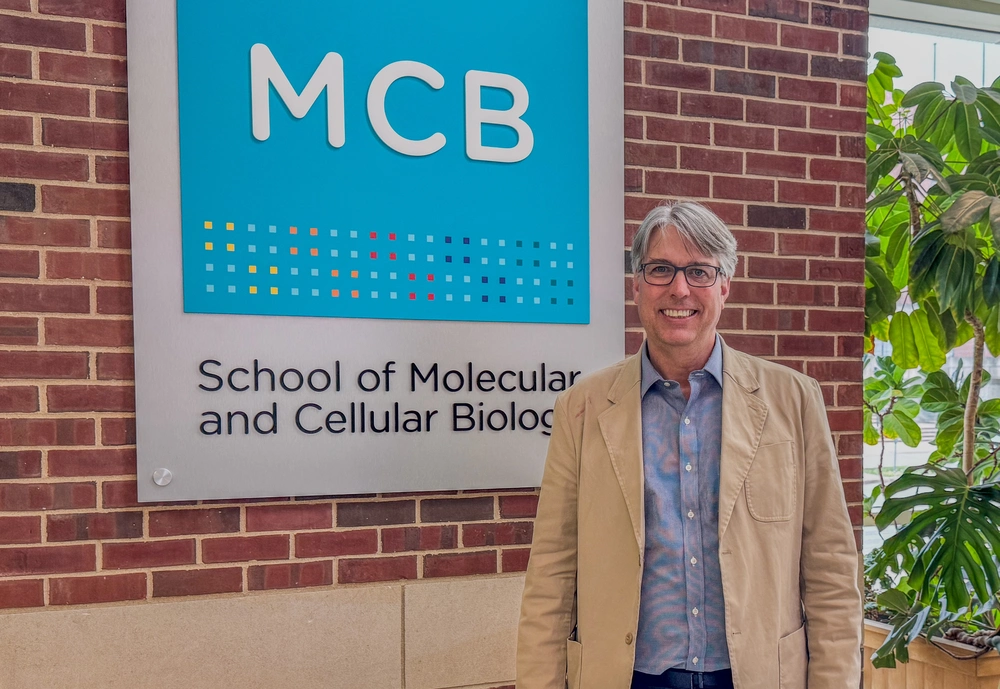
Since his time as a graduate student at Illinois, Dr. Alexander “Craig” Mackinnon (PhD, ‘04, Cell and Structural Biology; MD, ’04) has built a career in anatomical pathology and molecular genetic pathology. Currently serving as the inaugural director of the Division of Genomic Diagnostics and Bioinformatics at the University of Alabama at Birmingham, the physician-scientist works to advance precision medicine through cutting-edge genetic testing. He returned to campus this spring for the Department of Cell & Developmental Biology’s annual alumni seminar to deliver the talk, “Challenges Correlating Discordant Molecular and Histological Findings in Surgical Pathology.”
At Alabama, Mackinnon leads a laboratory medicine group that receives patient samples and analyzes them for mutations, generally in cancer. They also look at infectious diseases, germline mutations, or hereditary mutations with the goal of identifying a mutation and reporting it clinically, thus influencing a patient’s treatment.
As he has advanced in his career, the field of pathology has undergone significant changes, thanks to digital tools that make slide analysis faster and more accessible, along with advances in genome sequencing that were once time-consuming and costly.
"You can scan [slides] and look at them on a screen and then you can run all these algorithms. You can generate so much data now. I think there's a collision between digital imaging, sequencing genomics, artificial intelligence, and machine learning. It's going to revolutionize medicine,” he said.
Mackinnon's path in genomic medicine began in Illinois’ MD-PhD program. “The training at this school was great. You got strong support and personal attention from faculty," he said. Mackinnon also conducted research in a lab within what was then the Department of Cell and Structural Biology (now Cell & Developmental Biology). “I like that the labs communicate with each other, and you get to know people in other labs, even when working on different projects. It was just a great experience."
Mackinnon credits his training in cell biology and molecular biology at Illinois with providing a strong foundation for his career in pathology. "I felt very well prepared and ready for the next step," he said. "This place has a good value system, good mission. I think everyone's aligned in that regard.”
For current students considering similar career paths, Mackinnon's advice is to form a strong mentorship.
"Your mentor, your first boss, all those things are the most important. You're lucky when you have a series of really good mentors,” he said. He also encourages students to appreciate their experiences while studying. "If you were a musician who studied classical music, your technique and understanding of music theory would be strong as opposed to someone who just picks up a guitar and starts playing. It’s the same when working your way up to a college degree and eventually a career. It’s a gradual process that you are supposed to learn a lot from.”